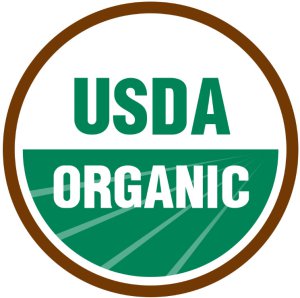Organic Certification
- 1. Who needs to be certified?
- 2. Who does NOT need to be certified?
- 3. How will farmers and handlers become certified?
- 4. Inspection and certification process
- 5. Compliance review and enforcement measures
Operations or portions of operations that produce or handle agricultural products that are intended to be sold, labeled, or represented as "100 percent organic," "organic," or "made with organic ingredients" or food group(s).

Farms and handling operations that sell less than $5,000 a year in organic agricultural products. Although exempt from certification, these producers and handlers must abide by the national standards for organic products and may label their products as organic. Handlers, including final retailers, that do not process or repackage products. Handlers that only handle products with less than 70 percent organic ingredients.
A handling operation or portion of an operation that is a retail food establishment that processes or prepares, on the premises of the establishment, raw and ready-to-eat food labeled organic. A handling operation that chooses to use the word organic only on the information panel. A handling operation that handles products that are packaged or otherwise enclosed in a container prior to being received by the operation and remain in the same package.
An applicant will submit specific information to an accredited certifying agent. Information will include:
- Type of operation: History of substances applied to land for the previous 3 years. Organic products being grown, raised, or processed. Applicant's organic plan, which includes practices and substances used in production. The organic plan also must describe the monitoring practices to be performed to verify that the plan is effectively implemented, the record-keeping system, and the practices to prevent commingling of organic and nonorganic products and to prevent contact of products with prohibited substances.
- Applicants for certification will have to keep accurate post-certification records for 5 years concerning the production, harvesting, and handling of agricultural products that are to be sold as organic.
- These records should document that the operation is in compliance with the regulations and verify the information provided to the certifying agent. Access to these records must be provided to authorized representatives of USDA, including the certifying agent.
Certifying agents will review applications for certification eligibility. A qualified inspector will conduct an on-site inspection of the applicant's operation. Inspections will be scheduled when the inspector can observe the practices used to produce or handle organic products and talk to someone knowledgeable about the operation.
The certifying agent will review the information submitted by the applicant and the inspector's report. If this information shows that the applicant is complying with the relevant standards and requirements, the certifying agent will grant certification and issue a certificate. Certification will remain in effect until terminated, either voluntarily or through the enforcement process.
Annual inspections will be conducted of each certified operation, and updates of information will be provided annually to the certifying agent in advance of conducting these inspections. Certifying agents must be notified by a producer immediately of any changes affecting an operation's compliance with the regulations, such as application of a prohibited pesticide to a field.
The rule will permit USDA or the certifying agent to conduct unannounced inspections at any time to adequately enforce the regulations. The Organic Foods Production Act also requires that residue tests be performed to help in enforcement of the regulations. Certifying agents and USDA will conduct residue tests of organically produced products when there is reason to believe that they have been contaminated with prohibited substances. If any detectable residues are present an investigation will be conducted to determine their source.
SOURCE: USDA National Organic Program
A list of Accredited Certifying Agents can be found at: https://www.ams.usda.gov/services/organic-certification/certifying-agents

